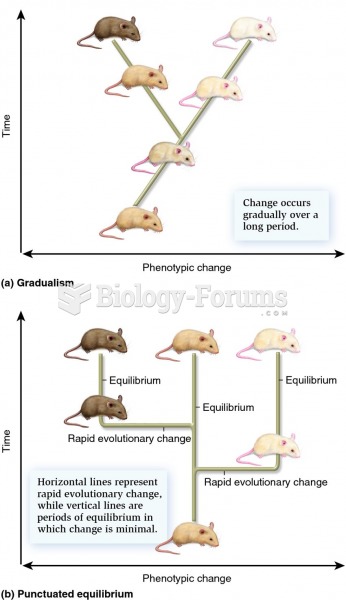|
|
|
As the western states of America were settled, pioneers often had to drink rancid water from ponds and other sources. This often resulted in chronic diarrhea, causing many cases of dehydration and death that could have been avoided if clean water had been available.
Drug abusers experience the following scenario: The pleasure given by their drug (or drugs) of choice is so strong that it is difficult to eradicate even after years of staying away from the substances involved. Certain triggers may cause a drug abuser to relapse. Research shows that long-term drug abuse results in significant changes in brain function that persist long after an individual stops using drugs. It is most important to realize that the same is true of not just illegal substances but alcohol and tobacco as well.
The most common treatment options for addiction include psychotherapy, support groups, and individual counseling.
The top five reasons that children stay home from school are as follows: colds, stomach flu (gastroenteritis), ear infection (otitis media), pink eye (conjunctivitis), and sore throat.
Always store hazardous household chemicals in their original containers out of reach of children. These include bleach, paint, strippers and products containing turpentine, garden chemicals, oven cleaners, fondue fuels, nail polish, and nail polish remover.
 Enzymatic features of DNA polymerase that account for its inability to copy one of the DNA strands a
Enzymatic features of DNA polymerase that account for its inability to copy one of the DNA strands a
 Correctly administering and interpreting an intelligence test is a skill that takes many years for ...
Correctly administering and interpreting an intelligence test is a skill that takes many years for ...
 The number of words correctly completed in the New York Times crossword puzzle increases with age ...
The number of words correctly completed in the New York Times crossword puzzle increases with age ...




